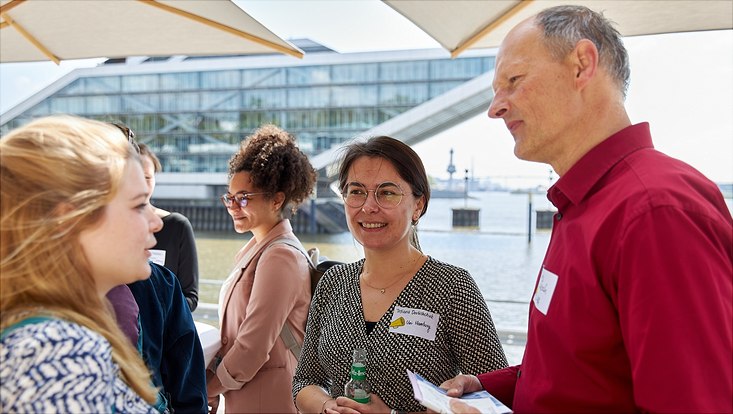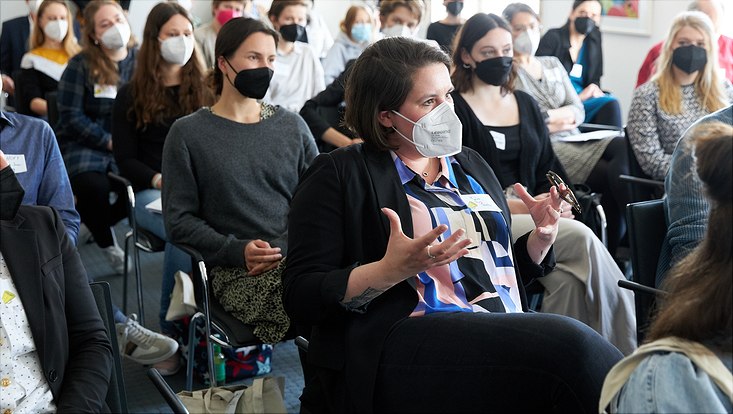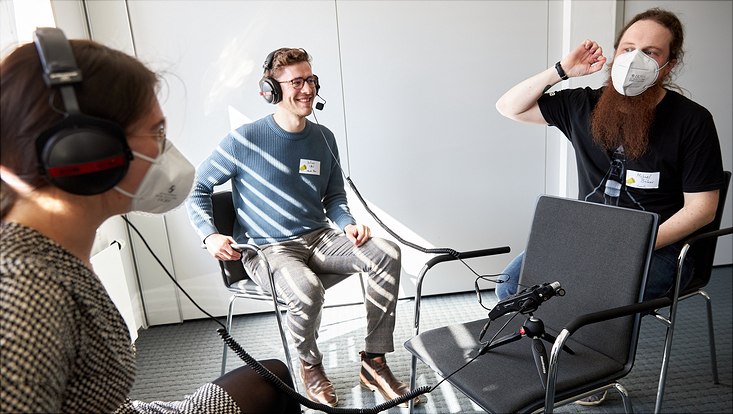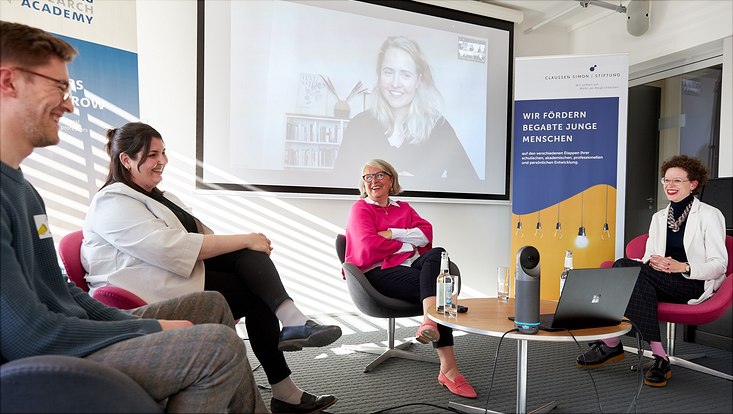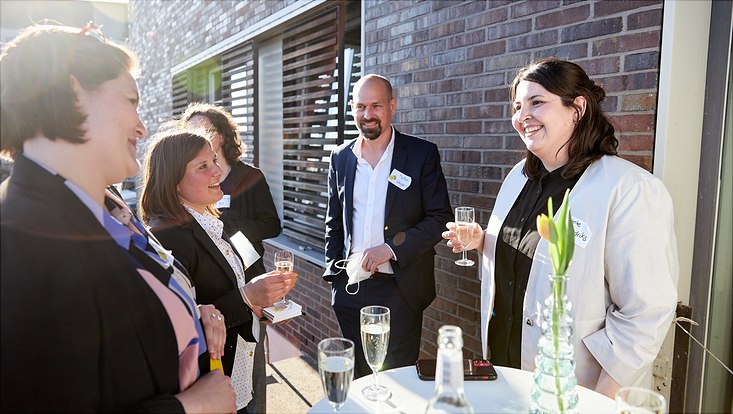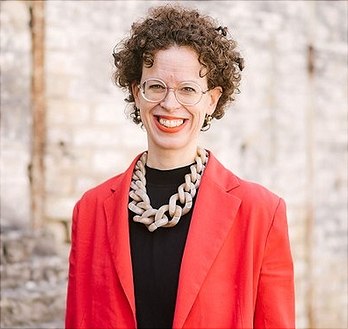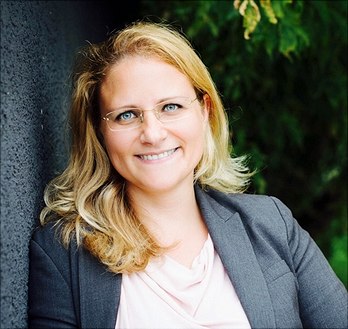“Let’s develop formats that put disruption and real discussion in the spotlight.”
When you think about research communication, do you immediately think of successful, professionally produced formats? With researchers talking artfully and eloquently about the long, tough road to a breakthrough? In her keynote speech, Julika Griem said that this type of narrative is often the result of a notion of research communication as a “delivery service.” In polished formats such as the TED Talks, the sender wraps up a package and hopes that it reaches the recipient undamaged. The success of the communication is measured by whether or not the “delivery” has been made without a problem. Julika Griem takes a critical view of this because the goal should not be a one-sided performance for an audience but a shared dialog. In her keynote speech, she thus encouraged listeners to consider alternative formats that promote conversation among equals and allow for disturbances, thereby calling at the very outset of the event for critical reflection upon our own understanding and the impact of research communication. The admonition became something of a rallying cry in the subsequent afternoon discussions.
Research communication—career killer?
How do calls for more research communication impact academia and doctoral and early career researchers in the long term? One consequence is that researchers can become more visible, even outside the rigid hierarchies of academia, and they can use research communication to promote their own work. This means that researchers just starting their careers can use research communication to draw attention to their own work. If you take a step back and look at which groups are currently communicating their work a lot and which aren’t, you will nonetheless detect a troubling development, despite the benefits of visibility: while many established professors keep a low profile, young women are especially committed to research communication. What at first seems positive can have far-reaching consequences: whoever spends more time communicating has less time for other research work. Generational and gender inequalities can grow more intense over time. Julika Griem’s gender-sensitive observation was very enlightening, but where does it lead? Should established researchers communicate more or young (female) researchers less? The only reasonable solution seems to be genuine recognition of achievements in the field of research communication. Research communication should not hinder but promote one’s career in academia. This can only happen, however, if we reform the evaluation criteria when offering appointments and granting funding.





